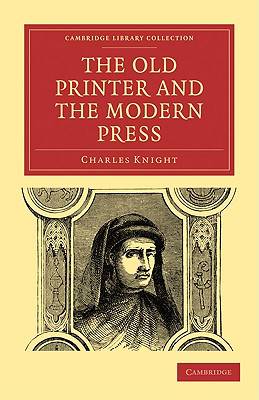
- Afhalen na 1 uur in een winkel met voorraad
- Gratis thuislevering in België vanaf € 30
- Ruim aanbod met 7 miljoen producten
- Afhalen na 1 uur in een winkel met voorraad
- Gratis thuislevering in België vanaf € 30
- Ruim aanbod met 7 miljoen producten
Zoeken
Omschrijving
Charles Knight's The Old Printer was first published in 1854 and is partly a biography of William Caxton and partly an account of the development of the printing press and its role in English literature from the fifteenth century. William Caxton was not only the first printer in England, but also a prolific translator and importer of books. He established a printing press at Westminster and among the books printed there were Chaucer's Canterbury Tales and The Subtil Histories and Fables of Esop. Knight describes Elizabethan reading habits and traces the development of the types of books, papers and magazines that were most popular with the reading public in the mid-nineteenth century. The author is particularly interested in the availability of cheap popular literature as he regards this as an indication of the democratisation of society.
Specificaties
Betrokkenen
- Auteur(s):
- Uitgeverij:
Inhoud
- Aantal bladzijden:
- 332
- Taal:
- Engels
- Reeks:
Eigenschappen
- Productcode (EAN):
- 9781108009225
- Verschijningsdatum:
- 4/03/2010
- Uitvoering:
- Paperback
- Formaat:
- Trade paperback (VS)
- Afmetingen:
- 140 mm x 216 mm
- Gewicht:
- 421 g

Alleen bij Standaard Boekhandel
+ 69 punten op je klantenkaart van Standaard Boekhandel
Beoordelingen
We publiceren alleen reviews die voldoen aan de voorwaarden voor reviews. Bekijk onze voorwaarden voor reviews.











